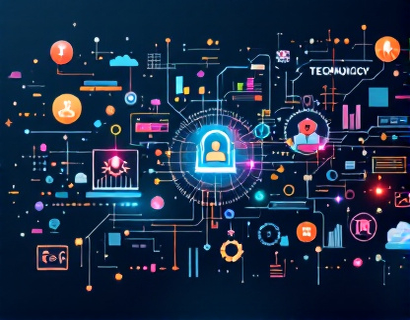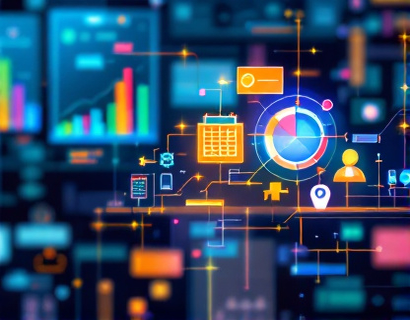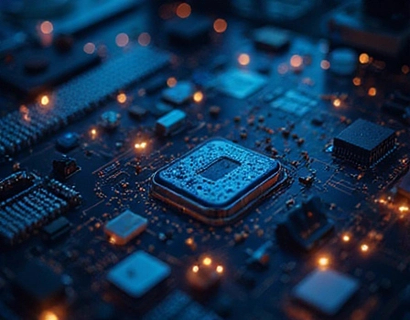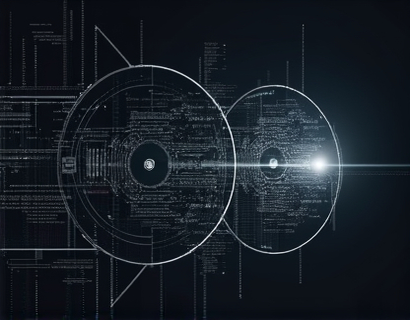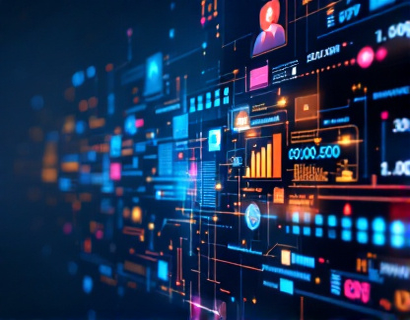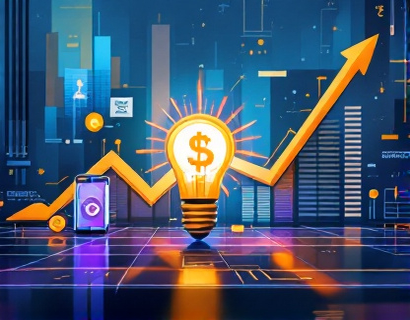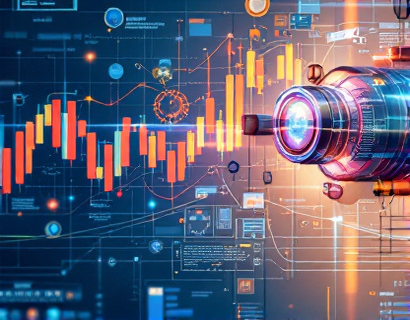Decentralized Innovation: Transforming Digital Experiences with Crypto and AI
The intersection of cryptocurrency and artificial intelligence (AI) is giving rise to a new era of digital innovation, one that promises to fundamentally transform how we interact with technology. This merging of decentralized systems and intelligent algorithms is not just a technological advancement but a paradigm shift in how digital experiences are crafted and delivered. For tech enthusiasts, early adopters, and anyone interested in the future of digital innovation, understanding this synergy is crucial. This article delves into the transformative impact of decentralized applications (dApps) and AI-driven services, exploring how these technologies are redefining user engagement and enhancing digital interactions.
The concept of decentralization has been a cornerstone of the blockchain revolution, offering a alternative to centralized systems by distributing control and data across a network of nodes. When combined with AI, the potential for innovation becomes immense. Decentralized applications, or dApps, leverage blockchain technology to create platforms that are transparent, secure, and resistant to censorship. These applications are built on smart contracts, self-executing contracts with the terms directly written into code, eliminating the need for intermediaries.
One of the key benefits of dApps is their ability to foster true decentralization, allowing users to have greater control over their data and interactions. Traditional centralized applications often collect and monetize user data without explicit consent, leading to privacy concerns and data breaches. In contrast, dApps built on blockchain ensure that user data remains under the control of the user, enhancing privacy and security. This shift empowers users, making them active participants rather than passive consumers in the digital ecosystem.
AI, on the other hand, brings a level of intelligence and adaptability to these decentralized systems. By integrating machine learning algorithms, dApps can analyze vast amounts of data, learn from patterns, and make predictions or decisions with minimal human intervention. This synergy between decentralization and AI creates a powerful toolset for developing innovative digital services that are not only secure and transparent but also intelligent and responsive to user needs.
Let's explore some of the ways in which decentralized innovation, driven by crypto and AI, is transforming digital experiences. One prominent area is in the realm of finance, where decentralized finance (DeFi) platforms are redefining traditional banking and financial services. DeFi leverages blockchain to provide lending, borrowing, trading, and other financial activities without the need for banks or other intermediaries. AI enhances these platforms by offering sophisticated risk management, fraud detection, and personalized financial advice.
For instance, AI-driven algorithms can analyze market trends and user behavior to optimize trading strategies in decentralized exchanges. These algorithms can adapt in real-time to changing market conditions, providing users with more accurate and efficient trading experiences. Moreover, AI can help in automating complex financial processes, reducing human error and increasing the overall efficiency of DeFi platforms. This combination of decentralization and AI not only enhances the functionality of financial services but also makes them more accessible to a global audience.
Beyond finance, the healthcare sector is another area where decentralized innovation and AI are making significant strides. Patient data management is a critical challenge in healthcare, with issues related to data privacy, interoperability, and accessibility. Decentralized health platforms can store patient data on a blockchain, ensuring that it is secure, tamper-proof, and easily accessible to authorized parties. AI algorithms can then analyze this data to provide personalized health insights, predict disease outbreaks, and optimize treatment plans.
For example, a decentralized health app could use AI to monitor a patient's health data in real-time, alerting them and their healthcare providers to potential issues before they become critical. This proactive approach to healthcare not only improves patient outcomes but also reduces the burden on healthcare systems. The use of blockchain ensures that patient data is owned and controlled by the individual, enhancing trust and compliance with regulations such as GDPR.
The entertainment industry is also experiencing a digital transformation through the integration of decentralized technologies and AI. Streaming services are adopting blockchain to create decentralized content distribution networks, allowing creators to upload and monetize their content directly without relying on centralized platforms. AI can enhance this ecosystem by recommending content based on user preferences, predicting trends, and even generating original content.
Imagine a platform where AI algorithms curate personalized playlists or movie recommendations, while the blockchain ensures that content creators receive fair compensation for their work. This model not only empowers creators but also provides users with a more diverse and tailored entertainment experience. The transparency of blockchain transactions ensures that payments are secure and transparent, reducing the risk of fraud and ensuring that artists are fairly rewarded.
In the realm of social media, decentralized platforms are emerging to address the issues of data privacy, misinformation, and user control. These platforms use blockchain to give users ownership of their data and content, allowing them to monetize their presence on these networks. AI can be employed to moderate content, detect and filter misinformation, and enhance user engagement through personalized feeds.
For example, a decentralized social media platform could use AI to analyze user interactions and preferences, creating a more engaging and relevant experience. At the same time, blockchain ensures that users retain control over their data, choosing who can access their information and how it is used. This balance between decentralization and AI-driven personalization can lead to more authentic and meaningful online interactions.
The education sector is another area poised for transformation through decentralized innovation and AI. Online learning platforms can leverage blockchain to create secure and verifiable credentials, ensuring that educational achievements are recognized and trusted globally. AI can personalize learning experiences, adapting to the individual needs and learning styles of students.
Consider a decentralized education platform where AI-driven tutoring systems provide personalized lessons, while blockchain ensures that certificates and diplomas are tamper-proof and easily verifiable. This combination not only enhances the learning experience but also makes education more accessible and equitable, breaking down barriers to entry for learners around the world.
As we delve deeper into the potential of decentralized innovation and AI, it's clear that these technologies are not just tools but foundational elements of a new digital ecosystem. This ecosystem is characterized by transparency, security, and user empowerment, fundamentally changing the way we interact with technology and each other.
However, the journey towards a fully decentralized and AI-enhanced digital world is not without challenges. Technical hurdles such as scalability, interoperability, and regulatory compliance need to be addressed to ensure the widespread adoption of these technologies. Moreover, there is a need for education and awareness to help users understand and trust these new systems.
Despite these challenges, the potential benefits are immense. Decentralized innovation and AI have the power to create more secure, transparent, and user-centric digital experiences. As more developers, businesses, and individuals embrace these technologies, we can expect to see a proliferation of innovative applications and services that redefine the digital landscape.
In conclusion, the merging of cryptocurrency and AI is not just a technological trend but a transformative force that is reshaping the future of digital experiences. By leveraging the strengths of decentralization and intelligent algorithms, we can build a more inclusive, secure, and engaging digital world. For those interested in exploring this exciting frontier, the possibilities are endless, and the future is bright.








